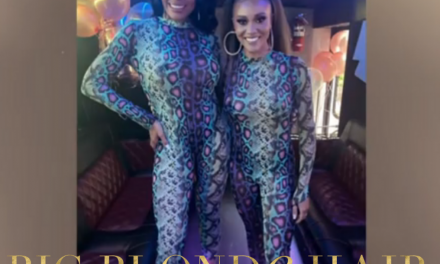
I’ve noticed women often have a love-hate relationship with visibility. We long to be seen and heard while also being afraid of it.
We seem ambivalent about how we regard those who stand out and this extends to ourselves as well.
It’s an uncomfortable feeling. It bothers us, but we don’t want to discuss it. That might attract unwanted attention.
Tall Poppy Syndrome
I first heard the term ‘tall poppy syndrome’ when an Australian actress mentioned it during an interview. It is a term used to describe those who seem too visible and successful. It’s about wanting to cut tall poppies down when they rise above the crowd.
If we see someone enjoying something we want but don’t have, we can end up condemning the very thing we value. The opposite happens when we want to avoid being viewed as a tall poppy ourselves. We hide our achievements, so we don’t appear to be bragging.
To Be or Not to Be Visible
We experience conflicted feelings about success when our desire for visibility clashes with our want to hide. This gets even more complicated as increasing numbers of Boomer women jump into self-employment. If others don’t know you exist, you don’t have a business.
The same is true with any midlife job search. If you are looking for a new job, you will need to be visible as most of the work available can only be accessed by networking with others – online or off. Even if you apply for a job in person – most employers will check out your online profile.
Many women hate having their photo taken. Some replace their online image with a photo of their pet or a flower. I understand why.
Online trolls who like to offer criticism are a reality. So are creeps looking for a date among your FB posts. And yet, it’s a conundrum – especially with the growth in online video, FaceTime and Skype.
Is Being Visible an Attitude?
In an online discussion I read, women said that visibility was about self-confidence. One advised, “Don’t consent to being invisible.” Another said, “The times in my life that I have felt invisible have never had anything to do with how others saw me, but with how I saw myself.”
Some women said they felt invisible because as they grew older the opposite sex seemed to pay less attention to them. Others said they felt invisible when out with their husbands. A man was addressed when buying a car – while they were ignored.
And yet other women said they sometimes like to feel invisible because they find it less stressful. It gives them a break from unwanted attention and a chance to be alone with their thoughts.
There Is Strength in Female Friendship
Female friendship allows us to be visible with our vulnerabilities. Among friends our own age, we feel connected by our common life experiences and realize we are not alone.
Like-minded women tend to share with each other and offer support. We’ll provide a compassionate ear, lend a helping hand, offer solutions, boost each other up and celebrate each other’s achievements.
We’ll remove our masks and share our joy, sorrow, goals and vulnerabilities. Brene Brown calls vulnerability “the birthplace of joy, creativity, belonging, and love.”
Women are learning that vulnerability can be a strength. To be fully human is to be vulnerable. No one gets out alive. Our younger selves often wore masks as we felt we had to pretend to be someone we’re not.
It’s hard to put yourself out there and open yourself to ridicule. It’s also hard to live a lie by hiding your authentic self. Older women are beginning to let go of any pretense from past roles. We are expressing more of ourselves.
Vulnerability is about a willingness to show up and be seen when we can’t control the outcome. It takes courage.
Life Is One Risk After Another
It is when we let down our defenses and express more of who we really are that we become more fully alive and human. We need to take chances. When we experience a full range of emotions that includes both joy and pain, we allow our emotions in – rather than deny them.
When we guard ourselves against love because we’re afraid of losing it – we’ve already lost. Part of being vulnerable means reaching out to others and asking for support, rather than going it alone.
Offering support is also a risk. We can offer kindness, affection or love and be rejected. We can reach for a goal and fall short of it and then look foolish in a public forum. It’s still worth the risk.
Let Yourself Be Seen and Heard
Even though as children we may have sung about “letting our little light shine,” as adults we still have a tendency to “hide it under a bushel.”
We all have dreams and challenges. A woman’s circle is good medicine for the soul. Sixty and Me is our circle.
Do you have conflicted feelings about wanting to be heard and yet also not wanting to stand out? Please share your thoughts and insights with our community using the comments section below.





